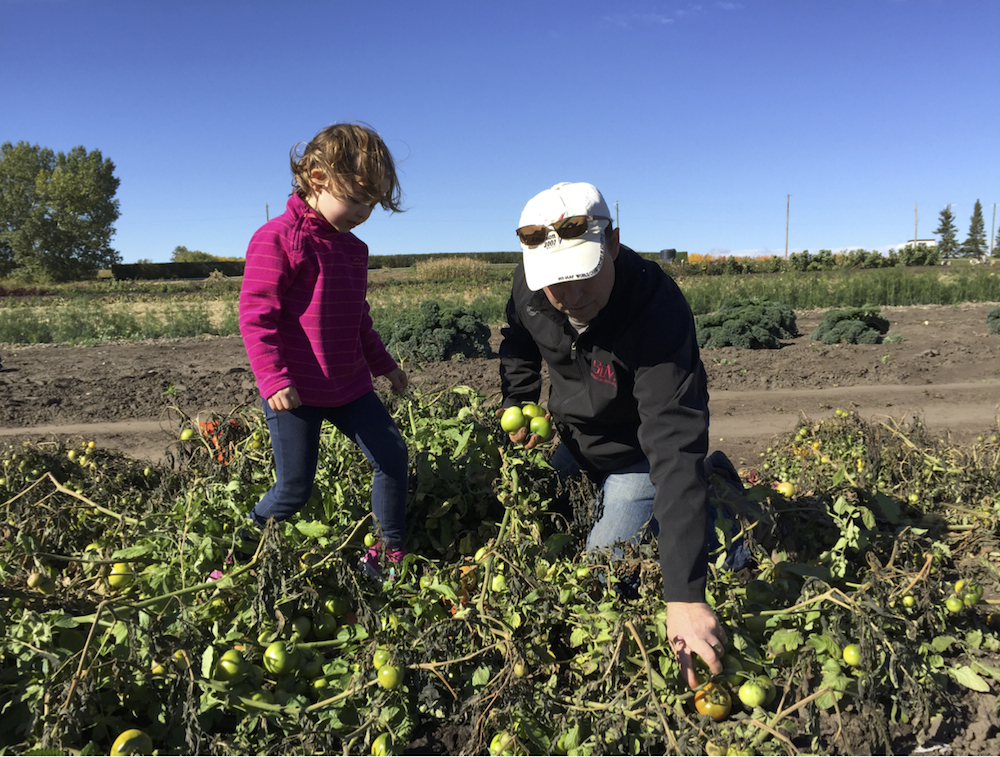
David Peacock, the newly installed executive director of the Community Service-Learning (CSL) program, uses the term "virtuous cycle" to describe instances where participants in CSL - including students, instructors, community partners (and their clients) and the greater Edmonton community - experience reciprocal learning and benefit, which in turn inspires further participation in community initiatives.
According to Peacock, virtuous cycles define UAlberta's CSL program.
CSL on campus was started about 10 years ago to bring real-life connections and experiential learning to the classroom. And now, with designated, multi-disciplinary CSL courses, a certificate program, and close to 200 community partners, students are given myriad opportunities to directly contribute to the social and political life of their city. In fact, last year, 1,500 CSL students contributed more than 30,000 hours to the non-profit community.
"There is some wonderful learning that's happening," says Peacock, who assumed the role of Executive Director in July 2015. "Students are able to construct their undergraduate degrees in such a way that it can lead to meaningful employment and careers."
Beyond that, however, Peacock stresses that the obvious benefits of experiential learning programs like CSL often produce a secondary benefit that can be life-changing. "It's about helping students learn that there are ways to pursue their education that is not solely focused on personal, private gain," explains Peacock. "Students are networked into a wider group [who are] participating in the processes of social change, and moving society to a more generous, more inclusive place."
Peacock cites various examples of CSL alumni who have returned as mentors and community partners - a reciprocity that he believes is emblematic of the health and vitality of the program. "Lisa Dockman was one of the first people within the CSL program to get a certificate," he says. "Now she's with the Office of Sustainability as a program lead - connecting with students in making positive social change." In a similar vein, "social entrepreneur" Carley-Jane Stanton, who came to the CSL program through an ALES course, has recently set up her own NGO called The Alder Food Security Society. "This is one of the impacts of the CSL program," says Peacock. "After a decade, is has tilled the soil and created a culture of engagement on campus, which is now flourishing in many places. We think that's a positive outcome."
Under the umbrella of CSL is Humanities 101 - an outreach program that enables people from the community to access otherwise unavailable university-level education. It is here that Peacock finds one of the most inspiring examples of a virtuous cycle in action. "Patti Howell has been with the Humanities 101 program for five years," he explains. "In spite of very difficult circumstances, she attributes some real successes and strengths in her life to the program. She is now a case worker at DESCA (Distinctive Employment Counseling Services of Alberta), an organization that assists marginalized people experiencing severe barriers to employment, and she is actively encouraging her clients to participate in Humanities 101."
Peacock's enthusiasm for CSL is palpable. The native Australian worked for 10 years at the University of Saskatchewan as an engaged learning coordinator before returning home to pursue a PhD at the University of Queensland. During that time, he looked at questions of student equity and how to extend opportunities for post-secondary education to a broader cohort of students - a research agenda he hopes to explore at the U of A.
Peacock believes that community-based learning programs like CSL are clear symbols of the public good universities offer, engendering the ultimate virtuous cycle: good citizenship. "So often, higher education gets reduced to a form of economics," he says, "but university is about more than taking care of your own back pocket. It's about being a full participant in a society, in which people have to contribute socially, culturally and politically. That's what CSL is doing."